Program
Digital Program
There will be no printed program for WebSci’24. For all updates to the schedule, please check the program in our conference app here: https://websci2024.lineupr.com/acm-web-science-conference-2024
You can save the link to your smartphone home screen for easy access during the conference.
***The conference app will be available only until June 30, 2024.***
Program Chart

Sessions
Keynote Speakers
Eszter Hargittai
Biography
Eszter Hargittai is Professor and holds the Chair of Internet Use and Society at the Department of Communication and Media Research of the University of Zurich (UZH). She is a Fellow of the International Communication Association and an External Member of the Hungarian Academy of Sciences. She received her Ph.D. in Sociology from Princeton University and her BA in Sociology from Smith College. Prior to joining UZH, she was the Delaney Family Professor of Communication Studies at Northwestern University.
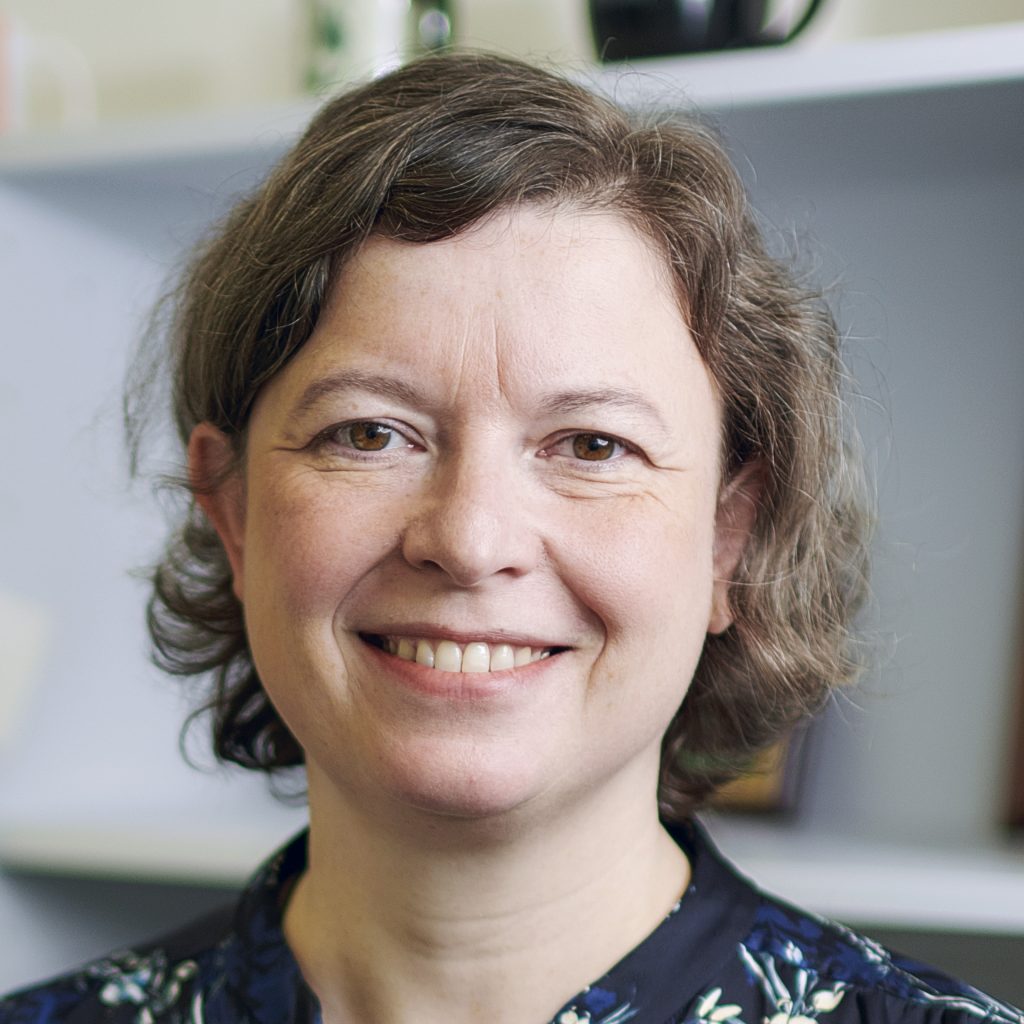
© Manu Friederich
Keynote: Older adults are more tech savvy than you think: implications for your research agenda
(Thursday, May 23; 14:00-15:00)
Adults 60 and over make up an increasing portion of the population yet they are often excluded from studies of Internet use. This talk draws on national survey data to show how older adults compare to younger age groups in their Internet uses and skills. Findings show that many older adults are more savvy and more active than popular rhetoric would suggest, including on social media where their engagement is sometimes close to those of younger cohorts. The talk highlights the importance of including a varied population group in studies that make generalizable claims.
Jie Tang
Biography
Jie Tang is a WeBank Chair Professor of the Department of Computer Science at Tsinghua University. He is a Fellow of the ACM, a Fellow of AAAI, and a Fellow of IEEE. His interests include artificial general intelligence, data mining, social networks, and machine learning. He served as General Co-Chair of WWW’23, and PC Co-Chair of WWW’21, CIKM’16, WSDM’15, and EiC of IEEE T. on Big Data and AI Open J. He is leading several major efforts on building large language models in China. He also invented AMiner.cn, which has attracted 30 million users from 220 countries/regions in the world. He was honored with the SIGKDD Test-of-Time Award, the 2nd National Award for Science&Technology, NSFC for Distinguished Young Scholar, and SIGKDD Service Award.
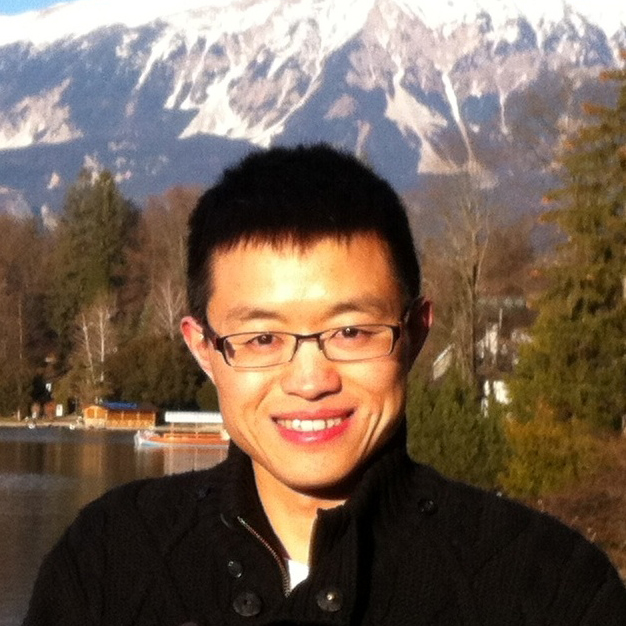
Keynote: The ChatGLM’s Road to AGI
(Friday, May 24; 09:00-10:00)
Large language models have substantially advanced the state of the art in various AI tasks, such as natural language understanding and text generation, and image processing, multimodal modeling. In this talk, we will first introduce the development of AI in the past decades, in particular from the angle of China. We will also talk about the opportunities, challenges, and risks of AGI in the future. In the second part of the talk, we will use ChatGLM, an alternative but open-sourced model to ChatGPT, as an example to explain our understanding and insights derived during the implementation of the model.
Dirk Hovy
Biography
Dirk Hovy is a professor in the computing sciences department at Bocconi University in Milan, Italy. He is also the scientific director of the Data and Marketing insights research unit. Before that, he was faculty and postdoc in Copenhagen, got a PhD in NLP from USC, and a master’s degree in linguistics from Marburg, Germany. He is interested in the interaction between language, society, and machine learning, or what language can tell us about society and what computers can tell us about language. He has authored over 100 articles on these topics, including three best paper awards. He is also the author of two textbooks on using text analysis in Python for social science research (https://bit.ly/3dhaEQ7 and https://bit.ly/3sYiwMH). Dirk has organized one conference and several workshops (on abusive language, ethics in NLP, and computational social science and sociolinguistics).
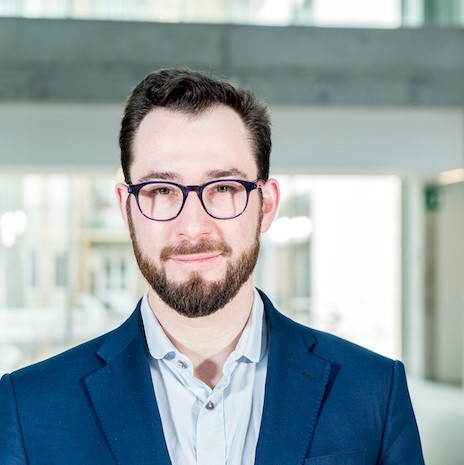
Keynote: Unhumanizing Models. Why we need to reconsider how we think about AI
(Friday, May 24; 14:00-15:00)
Can you guess how many AI models you interacted with today? Likely more than you realized: AI models manage our emails, traffic, hiring, search, and suggest shows to binge-watch. They are often difficult to detect – unless they act particularly human. AI models that code, paint, write, and play appear more human. But are they? And are we harming ourselves by humanizing these models?
In this talk, I will discuss our common tendency to humanize AI models. Ascribing human characteristics makes unfamiliar objects more approachable and acceptable. In the digital age, we have begun to anthropomorphize AI models. But at what cost?Giving AI models human abilities they lack mixes fact and fiction and gives them powers they do not have. This results in exaggerated claims and missed obstacles, and it obscures weaknesses, leading to AI risks and misuse. Drawing on examples from physics, psychology, philosophy, and personal stories, we will discuss what models can do without human talent and their inability to do the daily intricacies we do without thinking. I’ll also discuss AI’s real threat: human prejudices and biases.
Finally, I hope this talk has helps you better appreciate humanity. AI models may mirror human intellect and experience. They can help us realize our full potential and enhance society, but they are not like us! Recognizing this distinction is critical to responsible, ethical, and beneficial AI use.
Hannes Werthner
Biography
Hannes Werthner is a retired Computer Science Professor at the TU Wien, Austria, where he also served as the Dean of the faculty of Informatics. Prior to joining TU Wien, he had professorships at Austrian and international Universities. His research is in fields such as Decision Support Systems, E-Commerce and Recommender Systems. Besides research and teaching he founded several initiatives such as the Vienna PhD School of Informatics or the i2c / Informatics Innovation Center. He carefully observes how computer science and information technology are changing the world and us. This is his motivation for Digital Humanism, whose Vienna Manifesto he initiated in 2019. Since then he is active in this field – see also his latest contribution: “Introduction to Digital Humanism” (link.springer.com/book/10.1007/978-3-031-45304-5)
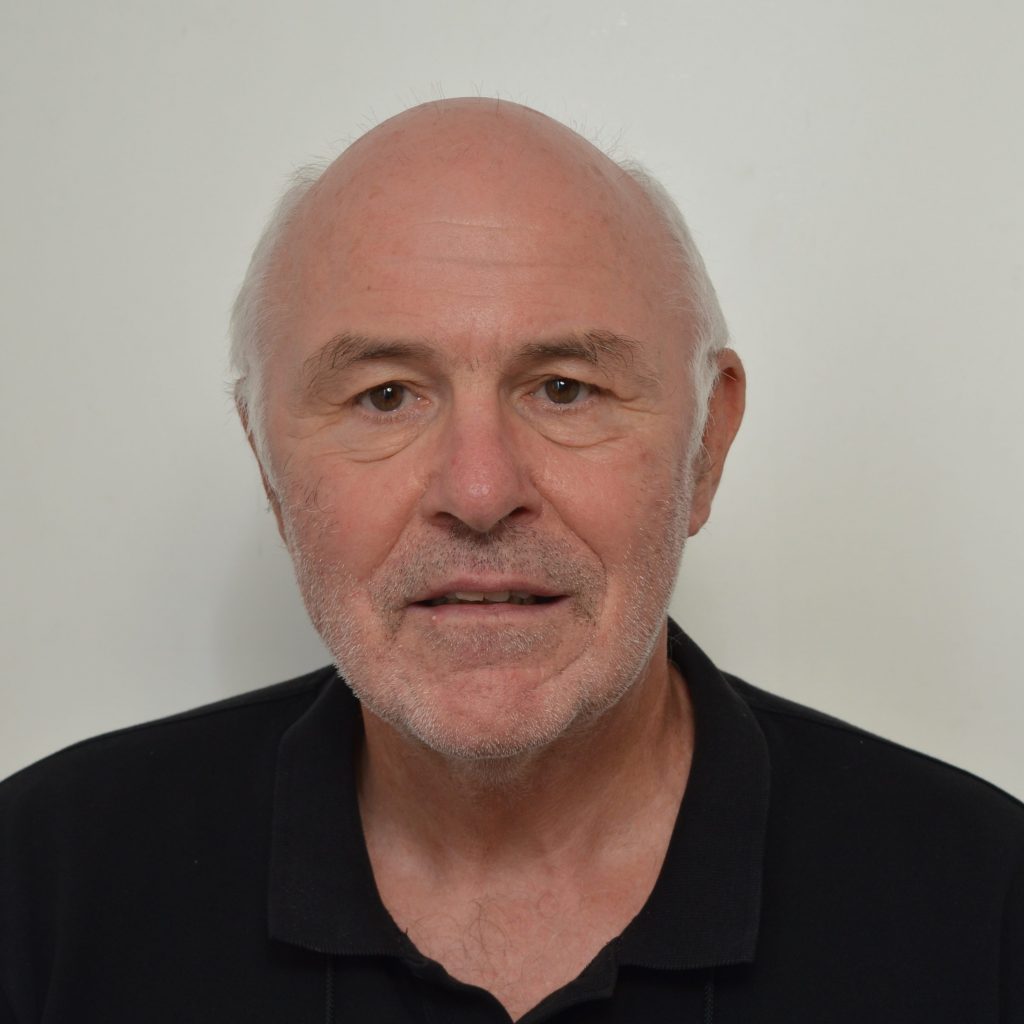
Keynote: Digital Humanism
(Wednesday, May 22; 14:00-15:00)
Information Technology changes ourselves and the world, from the individual level up to the ongoing geo-political powerplay. From an ontological point of view, it influences how we perceive the world and how we think about it. This transformation process took place in an extremely short period of time, at a very high speed. We highlight some features of this process, which, besides its enormous achievements, shows also serious shortcomings. The question posed is not a simple one: IT (including AI) may help solve the world’s multiple crises and make it a better place, but at the same time it is part of the problem (some even see it as the cause). We understand Digital Humanism as an answer to this question, as an approach to developing and regulating digital technologies so that they are used for the benefit of people and nature. It is a proactive approach that focuses on the integration of technical and social innovation.
Jennifer Pan
Biography
Jennifer Pan is a political scientist whose research focuses on political communication, digital media, and authoritarian politics. She is the Sir Robert Ho Tung Professor of Chinese Studies, Professor of Communication and (by courtesy) Political Science and Sociology, and a Senior Fellow at the Freeman Spogli Institute for International Studies at Stanford University. Dr. Pan’s research uses experimental and computational methods with large-scale datasets on political activity to answer questions about the role of digital media in authoritarian and democratic politics, including how political censorship, propaganda, and information manipulation work in the digital age and how preferences and behaviors are shaped as a result.
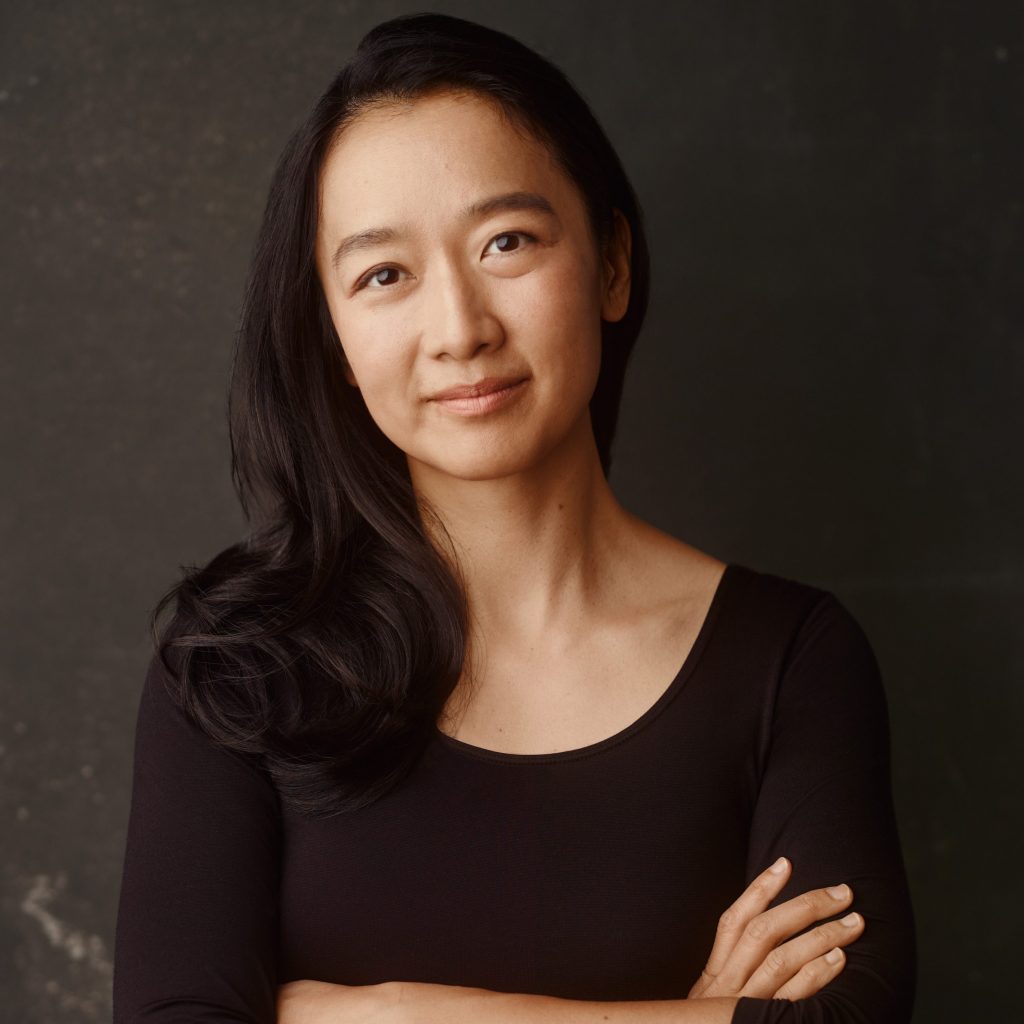
Keynote: China in the Global Information Ecosystem
(Wednesday, May 22; 09:00-10:00)
While digital communication technologies have revolutionized the way information can flow across borders and national boundaries, information does not flow freely everywhere. Governments around the world impose restrictions on access to digital information, and nowhere is the effort to control the transnational flow of digital information more extensive and sustained than in China. This talk will highlight empirical findings on how information flows between China and the global information ecosystem.
Workshops and Tutorials
Workshops
Workshop 1: Listening to the Web: Approaches to Sonification and Listening to Web Science Data

Web Science studies a highly complex socio-technical environment. Visualisation is a common form of representation for data. This workshop raises questions about sonification for Web Science data. Drawing from both ideas of representation and reflexively using computational models, the workshop will provoke questions about how to design models and listening. The aim is to develop a community drawing from existing models and to create or identify a set of resources that can be developed to support future research.
- Iain Emsley (iain.emsley@warwick.ac.uk)
Centre for Interdisciplinary Methodologies, University of Warwick, Coventry, UK - David De Roure (david.deroure@oerc.ox.ac.uk)
Oxford eResearch Centre, University of Oxford, Oxford, UK
Workshop 2: Linking Surveys and Social Media Data: Advancing Public Opinion Research (LASER)

The workshop aims to address the challenges and opportunities in public opinion research at the intersection of traditional survey data and social media data. Acknowledging the limitations of both data sources, such as biases in survey responses and issues of representativeness in social media data, the workshop seeks to explore the integration of these datasets using AI methodologies. This scholarly endeavor, led by international experts, will feature abstract submissions, keynote addresses, and paper presentations focusing on innovative strategies, ethical considerations, and practical applications in Computational Social Science (CSS). The event targets an academic audience, emphasizing the importance of integrating surveys and social media data to advance public opinion research and contribute to the academic discipline.
- Mehmet Fuat Kına (mkina18@ku.edu.tr)
Center for Computational Social Sciences, Koç University - Şükrü Atsızelti (satsizelti22@ku.edu.tr)
Sociology Department, Koç University - Oğuz Gürerk, Researcher (oguzgurerk@gmail.com)
Center for Computational Social Sciences, Koç University - Erdem Yörük (eryoruk@ku.edu.tr)
Center for Computational Social Sciences and Sociology Department, Koç University - Ali Hürriyetoğlu (ahurriyetoglu@ku.edu.tr)
KNAW Humanities Cluster DHLab
Workshop 3: Building an Online Atlas Using Domain Name Registration data: A Novel Approach to Web Based Geographic, Economic and Technology Insight

In December 2023, the .au Domain Administration published an Atlas of Australia Online which combines .au registry data with publicly available geographic, economic and technical data to depict the Australian digital landscape.
Using a new method to collate, rank and cluster .au domain names, the research applies machine learning to map the Australian technology landscape to identify areas of high digital business intensity and clusters of technological innovation.
This workshop / tutorial is designed to share the methodology and insights from this policy focused research report as an example of interdisciplinary research into the impact of the Web in society. Since this research focuses on the relationship between the domain registry record and geographic, economic and technical data it provides a unique perspective on the landscape of the Web in Australia. Some of the insights revealed may be relevant in other jurisdictions, and there are opportunities to extend this research into new avenues.
The research report can be downloaded here: https://www.auda.org.au/news-events-insights/reporting/research-reports/atlas-australia-online-2023
- Claire McFarland (claire.mcfarland@gmail.com)
Director, Beesness Consulting University of Technology, Sydney, NSW, Australia - Professor Paul McCarthy (paul@leagueofscholars.com)
CEO, League of Scholars Adjunct Professor of Computer Science, UNSW Sydney, Australia - Michael Lewis (michael.lewis@auda.org.au)
Manager, Industry Relations .au Domain Administration Melbourne, VIC, Australia
Workshop 4: DHOW: Diffusion of Harmful Content on Online Web

With the advancement of digital technologies and gadgets, online content is easily accessible. At the same time, harmful content also gets spread. There are different harmful content available on different platforms in multiple languages. The topic of harmful content is broad and covers multiple research directions. But from the user’s aspect, they are affected by them all. Often, it is studied individually, like misinformation and hate speech. Research has been done on one platform, monolingual, on a particular issue. It leads to harmful content spreaders switching platforms and languages to reach the user base. Harmful is not limited to social media but also news media. Spreader shares harmful content in posts, news articles, comments, and hyperlinks. So, there is a need to study the harmful content by combining cross-platform, language and topics.
Hence, by proposing the workshop, we plan to bring the research on harmful content under one umbrella so that research on different topics can bring some novel methods and recommendations for users. The workshop will cover the ongoing issue of war or elections in 2024. We propose a workshop, DOHW: Diffusion of Harmful Content on Online Web, which brings together the research on different topics of harmful content. We expect to discuss good research work and future research directions.
Workshop Website: https://dhow-workshop.github.io/
- Thomas Mandl
University of Hildesheim, Germany - Haiming Liu
University of Southampton, United Kingdom - Gautam Kishore Shahi (gautamshahi16@gmail.com)
University of Duisburg-Essen, Germany - Amit Kumar Jaiswal
University of Surrey, United Kingdom - Luis-Daniel Ibáñez
University of Southampton, United Kingdom - Durgesh Nandini
University of Bayreuth, Germany
Tutorials
Tutorial 1: Fair Clustering and Polarization Detection on Online Social Networks through Correlation Clustering
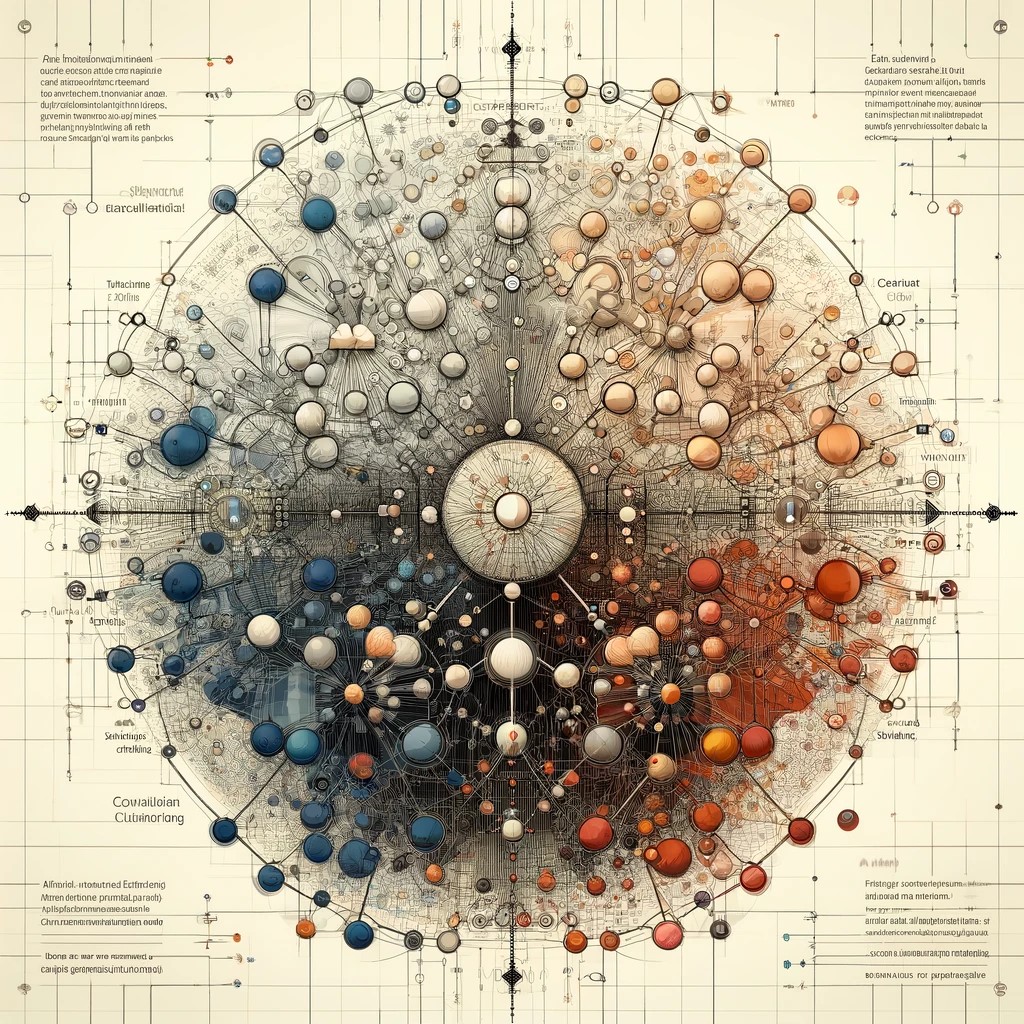
Clustering is a fundamental problem in data science, aiming to group objects based on similarity. Among existing options in the literature, correlation clustering stands out for its ability to group similar objects together while ensuring dissimilar ones are placed in separate clusters. This method finds applicability across diverse data types, such as relational and graph data, including Online Social Networks (OSNs). However, the potential of correlation clustering in addressing critical challenges like fair clustering and uncovering polarized communities in OSNs lacks a comprehensive exploration. Fair clustering addresses biases in algorithmic data analysis, crucial in grouping OSN users in clusters that are not dominated by a
specific type of sensitive data class (e.g., people having the same sex). Instead, detecting polarized communities reveals groups of users driven by divergent ideologies, essential in understanding online discourse dynamics. This tutorial aims to comprehensively explore correlation clustering’s versatility in tackling relevant societal challenges within online communities, such as fair clustering and uncovering polarized communities in OSNs.
- Domenico Mandaglio (d.mandaglio@dimes.unical.it)
DIMES Dept., University of Calabria Rende (CS), Italy - Lucio La Cava (lucio.lacava@dimes.unical.it)
DIMES Dept., University of Calabria Rende (CS), Italy - Andrea Tagarelli (andrea.tagarelli@unical.it)
DIMES Dept., University of Calabria Rende (CS), Italy
PhD Symposium
Schedule and Accepted Papers
The PhD Symposium will be held including a Welcome Session, three PhD Sessions, and an Award Ceremony. Within each PhD Session, each PhD student has 45 minutes split into 25-20 minutes of oral presentation and 20-25 minutes of feedback.
The schedule of the PhD Symposium is as follows:
Welcome Session (15 minutes)
1. Session (45 minutes):
| The spatiality of topics in typical sources of text data Johannes Mast1 1 German Aerospace Center (DLR), Germany |
coffee break
2. Session (90 minutes):
| Stemming the Tide of Problematic Information in Online Environments: Assessing Interventions and Identifying Opportunities for Interruption Kayla Duskin1 1 University of Washington, United States |
| What Makes Consent Meaningful? Asilata Karandikar1 1 International Insitute of Information Technology Bangalore, India |
lunch break
3. Session (90 minutes):
| Content Moderation, Platformised Speech Governance, and Legitimacy: TikTok in South and Southeast Asia Diyi Liu1 1 University of Oxford, United Kingdom |
| Advancing Web Science through Foundation Model for Tabular Data Inwon Kang1 1 Rensselaer Polytechnic Institute, United States |
coffee break
Award Ceremony (30 minutes)
Accepted Papers
Full Papers
| Detecting Multimodal Fake News with Gated Variational AutoEncoder Yimeng GU1, Ignacio CASTRO1, Gareth TYSON2 1 Queen Mary University of London, United Kingdom 2 The Hong Kong University of Science and Technology (GZ), China |
| Highly Regarded Investors? Mining Predictive Value from the Collective Intelligence of Reddit’s WallStreetBets Tolga BUZ1, Moritz SCHNEIDER1, Lucie-Aimée KAFFEE1, Gerard DE MELO1 1 Hasso Plattner Institute, University of Potsdam, Germany |
| The Role of Likes: How Online Feedback Impacts Users’ Mental Health Angelina VOGGENREITER1, Sophie BRANDT1, Fabian PUTTERER1, Andreas FRINGS1, Juergen PFEFFER1 1 Technical University of Munich, Germany |
| Echo Chambers in the Age of Algorithms: An Audit of Twitter’s Friend Recommender System Kayla DUSKIN1, Joseph SCHAFER1, Jevin WEST1, Emma SPIRO1 1 University of Washington, United States |
| Harmony in the Australian Domain Space Xian GONG1, Paul X. MCCARTHY2, Marian-Andrei RIZOIU3, Paolo BOLDI4 1 University of Technology, Australia 2 University of New South Wales, Australia 3 University of Technology Sydney, Australia 4 Università degli Studi di Milano, Italy |
| Here Be Livestreams: Trade-offs in Creating Temporal Maps of Reddit Virginia PARTRIDGE1, Jasmine MANGAT1, Rebecca CURRAN1, Ryan MCGRADY1, Ethan ZUCKERMAN1 1 University of Massachusetts Amherst, United States |
| Lost in Recursion: Mining Rich Event Semantics in Knowledge Graphs Florian PLÖTZKY1, Niklas KIEHNE1, Wolf-Tilo BALKE1 1 TU Braunschweig, Germany |
| A Genre-Based Analysis of New Music Streaming at Scale Julie JIANG1, Aditiya PONNADA2, Ang LI2, Ben LACKER2, Samuel WAY2 1 University of Southern California, United States 2 Spotify, United States |
| Analysing the Effect of Recommendation Algorithms on the Spread of Misinformation Miriam FERNANDEZ1, Alejandro BELLOGIN2, Iván CANTADOR2 1 The Open University, United Kingdom 2 Universidad Autonóma de Madrid, Spain |
| Corrective or Backfire: Characterizing and Predicting User Response to Social Correction Bing HE1, Yingchen MA1, Mustaque AHAMAD1, Srijan KUMAR1 1 Georgia Institute of Technology, United States |
| A Lexicon for Studying Radicalization in Incel Communities Emily KLEIN1, Jennifer GOLBECK2 1 University at Albany, United States 2 University of Maryland, United States |
| Dynamics in Search Engine Query Suggestions for European Politicians Franziska PRADEL1, Fabian HAAK2, Sven-Oliver PROKSCH3, Philipp SCHAER2 1 Technical University of Munich, Germany 2 TH Köln (University of Applied Sciences), Germany 3 University of Cologne, Germany |
| Using Wikipedia Pageview Data to Investigate Public Interest in Climate Change at a Global Scale Florian MEIER1 1 Aalborg University, Copenhagen, Denmark |
| Understanding opinions towards migrants in transit: An analysis of tweets on Migrant Caravans in the US and Mexico Abigail TUN MENDICUTI1, Jisu KIM2, Clara H. MULDER1 1 University of Groningen, Netherlands 2 Max Planck Institute for Demographic Research, Germany |
| Inside the echo chamber: Linguistic underpinnings of misinformation on Twitter Xinyu WANG1, Jiayi LI1, Sarah RAJTMAJER1 1 Pennsylvania State University, United States |
| Abortion and Miscarriage on Twitter: Sentiment and Polarity Analysis from a gendered perspective Olivier PHILIPPE1, María FLORES RODERO1, Claire FURTICK1, Laura PLANAS SIMÓN2, Maria Teresa FERRETTI3, Antonella SANTUCCIONE CHADHA3, Laia SUBIRATS MATÉ4, Davide CIRILLO5, María José REMENTERIA5 1 Barcelona Supercomputing Center, Spain 2 Scopely, Spain 3 Women’s Brain Project, Switzerland 4 Universitat Oberta de Catalunya, Spain 5 Barcelona Supercomputing Center, Spain |
| What makes a viral song? Unraveling music virality factors Gabriel P. OLIVEIRA1, Ana Paula COUTO DA SILVA1, Mirella M. MORO1 1 Universidade Federal de Minas Gerais, Brasil |
| A Longitudinal Study of Italian and French Reddit Conversations Around the Russian Invasion of Ukraine Francesco CORSO1, Giuseppe RUSSO2, Francesco PIERRI3 1 Politecnico di Milano, CENTAI Institute, Italy 2 ETH Zurich, Switzerland 3 Politecnico di Milano, Italy |
| Reacting to Generative AI: Insights from Student and Faculty Discussions on Reddit Chuhao WU1, Xinyu WANG1, John CARROLL1, Sarah RAJTMAJER1 1 The Pennsylvania State University, United States |
| Unveiling News Publishers Trustworthiness Through Social Interactions Manuel PRATELLI1, Fabio SARACCO2, Marinella PETROCCHI3 1 IMT School for Advanced Studies Lucca, Italy 2 Centro Ricerche `Enrico Fermi’, Rome, Italy 3 IIT-CNR, Pisa, Italy |
| Fact checks versus problematic content in search rankings: SEO effects and the question of Google‘s content moderation Kamila KORONSKA1, Richard ROGERS1 1 University of Amsterdam, Netherlands |
| Improved methodology for longitudinal Web analytics using Common Crawl Henry S. THOMPSON1 1 University of Edinburgh, United Kingdom |
| Misinformation and Polarization around COVID-19 vaccines in France, Germany, and Italy Gianluca NOGARA1, Francesco PIERRI2, Stefano CRESCI3, Luca LUCERI4, Silvia GIORDANO1 1 SUPSI, Switzerland 2 Politecnico di Milano, Italy 3 IIT-CNR, Italy 4 USC Information Sciences Institute, United States |
| Waiting for Q: An Exploration of QAnon Users’ Online Migration to Poal in the Wake of Voat’s Demise Antonis PAPASAVVA1, Enrico MARICONTI1 1 University College London, United Kingdom |
| Exploring Local Music’s Place in Global Streaming Samuel WAY1, Dominika MAZUR1, Rebecca KUPFERMAN1, Megan WALSH1, Angelina TIZÉ1, Benjamin LACKER1 1 Spotify, United States |
| Shorts vs. Regular Videos on YouTube: A Comparative Analysis of User Engagement and Content Creation Trends Caroline VIOLOT1, Tuğrulcan ELMAS2, Igor BILOGREVIC3, Mathias HUMBERT1 1 University of Lausanne, Switzerland 2 Indiana University Bloomington, United States 3 Google, Switzerland |
| Hate Speech Detection and Reclaimed Language: Mitigating False Positives and Compounded Discrimination Eszter ZSISKU1, Arkaitz ZUBIAGA1, Haim DUBOSSARSKY1 1 Queen Mary University of London, United Kingdom |
| Deciphering Crypto Twitter Inwon KANG1, Maruf Ahmed MRIDUL1, Abraham SANDERS1, Yao MA1, Thilanka MUNASINGHE1, Aparna GUPTA1, Oshani SENEVIRATNE1 1 Rensselaer Polytechnic Institute, United States |
| U. S. Users’ Exposure to YouTube Videos On- and Off-platform Desheng HU1, Ronald ROBERTSON2, Aniko HANNAK1, Christo WILSON3 1 University of Zurich, Switzerland 2 Stanford Internet Observatory, Stanford University, United States 3 Northeastern University, United States |
| Accuracy and Fairness for Web-Based Content Analysis under Temporal Shifts and Delayed Labeling Abdulaziz ALMUZAINI1, David PENNOCK2, Vivek SINGH1 1 Rutgers University, United States 2 Microsoft, United States |
| Temporal Dynamics of User Engagement on Instagram: A Comparative Analysis of Album, Photo, and Video Interactions Elin THORGREN1, Alireza MOHAMMADINODOOSHAN1, Niklas CARLSSON1 1 Linköping University, Sweden |
| Competition of Influencers: A Model for Maximizing Online Social Impact Franco GALANTE1, Michele GARETTO2, Emilio LEONARDI1 1 Politecnico di Torino, Italy 2 Università di Torino, Italy |
Short Papers
| Contextualized Word Embeddings Expose Ethnic Biases in News Damian TRILLING1, Guusje THIJS1, Anne C. KROON1 1 University of Amsterdam, Netherlands |
| Social Group Differences in the Social Media Discussion about ChatGPT and Bing Chat Maximilian WEBER1 1 Goethe University, Germany |
| The role of interface design on prompt-mediated creativity in Generative AI Maddalena TORRICELLI1, Mauro MARTINO2, Andrea BARONCHELLI1, Luca Maria AIELLO3 1 City, University of London, United Kingdom 2 IBM Research, United States 3 IT University of Copenhagen, Denmark |
| Polarization in Decentralized Online Social Networks Lucio LA CAVA1, Domenico MANDAGLIO1, Andrea TAGARELLI1 1 DIMES, University of Calabria, Italy |
| An Exploration of Decentralized Moderation on Mastodon Carlo BONO1, Lucio LA CAVA2, Luca LUCERI3, Francesco PIERRI1 1 DEIB, Politecnico di Milano, Italy 2 DIMES, University of Calabria, Italy 3 USC Information Sciences Institute, United States |
| Conspiracy Narratives on Voat: A Longitudinal Analysis of Cognitive Activation and Evolutionary Psychology Features Veronika BATZDORFER1 1 GESIS-Leibniz Institute for the Social Sciences, Germany |
| Shifting Climates: Climate Change Communication from YouTube to TikTok Arianna PERA1, Luca Maria AIELLO1 1 IT University of Copenhagen, Denmark |
| Uncovering Gender Bias within Journalist-Politician Interaction in Indian Twitter Brisha JAIN1, Mainack MONDAL2 1 Independent researcher, India 2 Indian Institute of Technology, Kharagpur, India |
Accepted Posters
Will show up in companion proceedings
| Using Voice Data to Facilitate Depression Risk Assessment in Primary Health Care Abhay GOYAL1, Roger HO CHUN MAN2, Roy Ka-Wei LEE3, Koustuv SAHA4, Frederick L. ALTICE5, Christian POELLABAUER6, Orestis PAPAKYRIAKOPOULOS7, Lam YIN CHEUNG8, Munmun DE CHOUDHURY9, Kanica ALLAGH10, Navin KUMAR10 1 Missouri University of Science and Technology, United States 2 National University of Singapore, Singapore 3 Singapore University of Technology and Design, Singapore 4 University of Illinois at Urbana-Champaign, United States 5 Yale School of Medicine, United States 6 Florida International University, United States 7 Technical University of Munich, Germany 8 Independent Researcher, Singapore 9 Georgia Institute of Technology, United States 10 KindModels, United States |
| What occurs as #news on TikTok? A Computational Approach Jonathan HENDRICKX1, Lion WEDEL2, Anna-Theresa MAYER2 1 Universität Wien, Austria 2 Weizenbaum Institute, Germany |
| WarClaim: A Dataset for Fake News on 2023 Israel–Hamas war Gautam Kishore SHAHI1, Durgesh NANDINI2 1 University of Duisburg-Essen, Germany 2 University of Bayreuth |
| Navigating the Chaos: The Sandbox Network Analysis Fernando SPADEA1, Oshani SENEVIRATNE1 1 Rensselaer Polytechnic Institute, United States |
| Who is targeted? Detecting social group mentions in online political discussions Farane JALALI FARAHANI1, Sara HANKE2, Corina DIMA1, Raphael H. HEIBERGER2, Steffen STAAB1 1 University of Stuttgart, Institute for Artificial Intelligence, Germany 2 University of Stuttgart, Institute for Social Science, Germany |
| Online Press Releases: Earmarks of Outstanding Research? Steffen LEMKE1 1 CAU Kiel University, Germany |
| Amplifying Academic Research through YouTube: Engagement Metrics as Predictors of Citation Impact Olga ZAGOVORA1, Talisa SCHWALL1, Katrin WELLER2 1 RPTU Kaiserslautern-Landau, Germany 2 GESIS – Leibniz Institute for the Social Sciences, Germany |
| Investigating Bias in Political Search Query Suggestions by Relative Comparison with LLMs Fabian HAAK1, Björn ENGELMANN1, Christin Katharina KREUTZ1, Philipp SCHAER1 1 TH Köln, Germany |
| TweetInfo: An Interactive System to Mitigate Online Harm Gautam Kishore SHAHI1 1 University of Duisburg-Essen, Germany |
| Multi-means Analysis of Information Diffusion in Telegram Jennifer NEUMANN1, Peter M. FISCHER1 1 Universität Augsburg, Germany |
| Deciphering Conversational Networks: Stance Detection via Hypergraphs and LLMs Daniele DE VINCO1, Alessia ANTELMI2, Carmine SPAGNUOLO1, Luca Maria AIELLO3 1 Università degli Studi di Salerno, Italy 2 Università degli Studi di Torino, Italy 3 IT University of Copenhagen, Denmark |
Opted out of companion proceedings
| Bridging Social Divisions with AI: How Generative AI Produces Multimodal Information to Debunk Climate Change Misinformation and Empower Governance Chuyao WANG1, Feng HAN2 1 London School of Economics and Political Science, United Kingdom 2 The University of Edinburgh, United Kingdom |
| Populist Content on YouTube: Online-Communication Strategies of German Parties Lukas ERHARD1 1 University of Stuttgart, Germany |
| Moralized language predicts hate speech on social media Kirill SOLOVEV1, Nicolas PRÖLLOCHS1 1 University of Giessen, Germany |
| Community notes increase trust in fact-checking on social media Chiara DROLSBACH1, Kirill SOLOVEV1, Nicolas PRÖLLOCHS1 1 University of Giessen, Germany |
Additionally, several papers that were accepted to the main conference will present their work additionally as posters:
| Conspiracy Narratives on Voat: A Longitudinal Analysis of Cognitive Activation and Evolutionary Psychology Features Veronika BATZDORFER1 1 GESIS-Leibniz Institute for the Social Sciences, Germany |
| Deciphering Crypto Twitter Inwon KANG1, Maruf Ahmed MRIDUL1, Abraham SANDERS1, Yao MA1, Thilanka MUNASINGHE1, Aparna GUPTA1, Oshani SENEVIRATNE1 1 Rensselaer Polytechnic Institute, United States |
| Highly Regarded Investors? Mining Predictive Value from the Collective Intelligence of Reddit’s WallStreetBets Tolga BUZ1, Moritz SCHNEIDER1, Lucie-Aimée KAFFEE1, Gerard DE MELO1 1 Hasso Plattner Institute, University of Potsdam, Germany |
| U. S. Users’ Exposure to YouTube Videos On- and Off-platform Desheng HU1, Ronald ROBERTSON2, Aniko HANNAK1, Christo WILSON3 1 University of Zurich, Switzerland 2 Stanford Internet Observatory, Stanford University, United States 3 Northeastern University, United States |
| Here Be Livestreams: Trade-offs in Creating Temporal Maps of Reddit Virginia PARTRIDGE1, Jasmine MANGAT1, Rebecca CURRAN1, Ryan MCGRADY1, Ethan ZUCKERMAN1 1 University of Massachusetts Amherst, United States |
| Temporal Dynamics of User Engagement on Instagram: A Comparative Analysis of Album, Photo, and Video Interactions Elin THORGREN1, Alireza MOHAMMADINODOOSHAN1, Niklas CARLSSON1 1 Linköping University, Sweden |
| Fact checks versus problematic content in search rankings: SEO effects and the question of Google‘s content moderation Kamila KORONSKA1, Richard ROGERS1 1 University of Amsterdam, Netherlands |
| Accuracy and Fairness for Web-Based Content Analysis under Temporal Shifts and Delayed Labeling Abdulaziz ALMUZAINI1, David PENNOCK2, Vivek SINGH1 1 Rutgers University, United States 2 Microsoft, United States |
| Misinformation and Polarization around COVID-19 vaccines in France, Germany, and Italy Gianluca NOGARA1, Francesco PIERRI2, Stefano CRESCI3, Luca LUCERI4, Silvia GIORDANO1 1 SUPSI, Switzerland 2 Politecnico di Milano, Italy 3 IIT-CNR, Italy 4 USC Information Sciences Institute, United States |
Panel Discussion
In this panel discussion, Eszter Hargittai, Katharina Kinder-Kurlanda, and Hannes Werthner will discuss “The Web, AI, and Society”. The discussion will be moderated by Steffen Staab.

© Manu Friederich
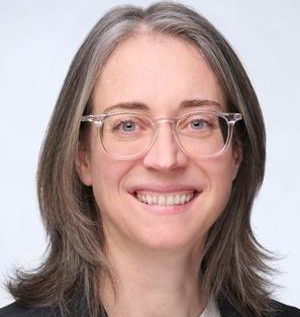


Awards
This year, we will be allocating the following awards:
- Annual Test of Time Award – Sponsored by Web Science Trust – 1000 £
- Best Paper Awards – Sponsored by SIGWEB – 1000 €
- 800€ Best Full Paper
- 200€ Best Short Paper
- Best Poster – Sponsored by Web Science Trust – 50 £
- Best PhD Paper Presentation – Sponsored by Web Science Trust – 100 £
Test of Time Award Committee
- Oshani Seneviratne (Chair)
- Munmun De Choudhury
- Srinath Srinivasa
- Matthew Weber
Best Paper Awards
- The Best Paper Awards will be awarded to the best full and the best short paper submissions, as judged by the conference organizers (800€ Full Paper / 200€ Short Paper).
Best Poster Award
- The Best Poster Award will be awarded to the best full poster submitted, as judged by the Poster Committee.
Best Ph.D. Paper Presentation Award
- The Best Ph.D. Paper Presentation Award will be awarded and judged by the Ph.D. Symposium Committee.
The Annual Test of Time Award will be announced Wednesday morning during the opening message. The other awards will be announced during the Conference Closing Ceremony on Friday, May 24, 2024.
These are the winners of this year’s awards:
- Annual Test of Time Award: Albert Solé Ribalta (UOC), Manlio De Domenico (UniPD), Sergio Gomez (URV), and Alex Arenas (URV) for their work titled “Centrality rankings in multiplex networks”
- Best Paper Awards:
- Best Full Paper: Abdulaziz Almuzaini, David Pennock, and Vivek Singh for their paper titled “Accuracy and Fairness for Web-Based Content Analysis under Temporal Shifts and Delayed Labeling”
[First Runner Up: Tolga Buz, Moritz Schneider, Lucie-Aimée Kaffee, and Gerard de Melo; “Highly Regarded Investors? Mining Predictive Value from the Collective Intelligence of Reddit’s WallStreetBets”;
Second Runner Up: Eszter Zsisku, Arkaitz Zubiaga, and Haim Dubossarsky; “Hate Speech Detection and Reclaimed Language: Mitigating False Positives and Compounded Discrimination”] - Best Short Paper: Lucio La Cava, Domenico Mandaglio, and Andrea Tagarelli for their paper titled “Polarization in Decentralized Online Social Networks”
- Best Full Paper: Abdulaziz Almuzaini, David Pennock, and Vivek Singh for their paper titled “Accuracy and Fairness for Web-Based Content Analysis under Temporal Shifts and Delayed Labeling”
- Best Poster Award: Chiara Drolsbach, Kirill Solovev, and Nicolas Pröllochs for their poster titled “Community notes increase trust in fact-checking on social media”
- Best PhD Paper Presentation Award: Kayla Duskin for the work titled “Stemming the tide of problematic information in online environments: Assessing interventions and identifying opportunities for interruption”
- PhD Paper Presentation – Runner-Up: Diyi Liu for the work titled “Content moderation, platformised speech governance, and legitimacy: TikTok in South and Southeast Asia”
We congratulate all the winners and wish them all the best for their future research endeavors!
Conference Dinner
When: Thursday, May 23, 2024; *Time: 7:00 pm
Where:
Alte Kanzlei Stuttgart GmbH
Schillerplatz 5
70173 Stuttgart

Restaurant Website: https://alte-kanzlei-stuttgart.de/
**** Time is subject to change. ****
Brave Conversations
Brave Conversations began in 2017 and have been held worldwide since then. It started with the goal of bringing the conversations of the Web Science Conferences to the public space and, since then, has worked with communities to explore how technologies are changing their lives and how they, in turn, are changing those technologies.
We are happy to welcome Brave Conversations to Stuttgart-Vaihingen this year, where they, following tradition, will be anchored within the Web Science Conference 2024.
Brave conversations will be held on Tuesday, May 21, 9:00 am – 1:00 pm. More information can be found at Brave Conversations -Stuttgart 2024.
Brave Conversations Stuttgart 2024 takes place in a world undergoing significant social, political, and technological change.
We will be exploring:
- What is the definition of a human in the Age of the Smart Machine?
- What is the role of a human in this Age of the Smart Machine?
- How do we retain our humanity while harnessing the power of Smart Machines to improve life for all on Planet Earth?
We will be guided in our conversations by the use of Mark Moore’s Strategic Triangle, asking:
- What Can We Do?
- What Should We Do?
- What May We Do?
Registration is free but required. To join, please register here.